Hello, for those looking to learn about vitamins, I’m here to share some basic knowledge on the subject. Vitamins are essential nutrients that our body needs. Many people are curious about vitamins, but don’t worry! I’ll tell you everything from now on. Shall we learn about vitamins together? ♡
Definition and Importance of Vitamins
Vitamins are essential nutrients for our body. Though required in small amounts, vitamins play a crucial role in our body’s metabolic activities. Since our body cannot produce vitamins on its own, we need to intake an appropriate amount of vitamins from external sources. Vitamins have various functions and help maintain our health and prevent metabolic disorders.
Various Classifications and Characteristics of Vitamins
Vitamins can be divided into several types, among which the main ones are fat-soluble vitamins (A, D, E, K) and water-soluble vitamins (C, B group). Fat-soluble vitamins dissolve in fats and can be stored in the body after digestion. Water-soluble vitamins dissolve in water and are excreted out of the body, so they need to be ingested regularly.
Essential Vitamins and Their Impact on the Human Body
Essential vitamins are vitamins that must be ingested for our body to function properly. These include vitamins A, B group, C, D, E, and K. Each of these essential vitamins affects various functions in our body. For example, vitamin A helps improve vision and skin health, while vitamin C is important for boosting immunity and collagen production.
Causes and Symptoms of Vitamin Deficiency
Vitamin deficiency occurs when an adequate amount of vitamins is not consumed. This can happen due to various reasons. Common symptoms of vitamin deficiency include fatigue, lethargy, and skin problems.
Sources of Vitamins in Daily Life
Vitamins can be obtained from various foods. For instance, vitamin C is rich in oranges, pineapples, and broccoli. Vitamin D can be produced in the body through sunlight exposure, but it can also be obtained from certain foods.
Precautions When Choosing Vitamin Supplements
Vitamin supplements can be used to compensate for vitamin deficiencies. However, there are important considerations when choosing vitamin supplements.
First, choose products approved by the Food and Drug Administration. Second, adhere to the recommended intake; excessive consumption can be harmful to your health.
Risks and Side Effects of Excessive Vitamin Intake
Excessive intake of vitamins can cause side effects. For example, an overdose of vitamin A can cause poisoning symptoms, while excessive vitamin C intake can lead to digestive disorders. Therefore, it is important to maintain an appropriate intake of vitamins.
Vitamins Required in Specific Situations
In certain situations, specific vitamins may be more necessary. For example, during pregnancy, adequate intake of folic acid (vitamin B9) is important. For people who exercise frequently, vitamins B group and C are recommended.
Myths and Truths About Vitamin Intake
There are several misconceptions about vitamin intake. For example, many people think that vitamin supplements are sufficient, but it is important to obtain vitamins from diverse foods. Also, high doses of vitamins are not always better; maintaining the appropriate amount is crucial.
Practical Tips for Healthy Vitamin Intake
Here are some tips for a healthy intake of vitamins.
First, diversify your diet to intake a variety of vitamins. Second, consider cooking methods to prevent nutrient loss. Lastly, it is advisable to consult a professional before taking vitamin supplements.
Let’s learn about the different types of vitamins and the foods where you can get them.
Fat-soluble Vitamins
Fat-soluble vitamins are stored with fats in the body and used. These include vitamins A, D, E, and K.
- Vitamin A: Important for vision and skin health. It is found in foods like carrots, spinach, sweet potatoes, eggs, milk, and liver (especially beef liver).
- Vitamin D: Necessary for maintaining bone health and helps in the absorption of calcium and phosphorus. It can be obtained from sunlight, as well as from mackerel, salmon, tuna, milk, and fortified cereals.
- Vitamin E: Acts as an antioxidant and protects cells. Found in foods such as sunflower seeds, almonds, spinach, and broccoli.
- Vitamin K: Necessary for blood clotting and also important for bone health. Found in green leafy vegetables (kale, spinach, broccoli), soybean oil, and canola oil.
Water-soluble Vitamins
Water-soluble vitamins are easily excreted from the body, so they need to be consumed regularly. This includes vitamin C and the B-complex vitamins.
- Vitamin C: Strengthens the immune system and aids in collagen production. Found in foods such as oranges, strawberries, kiwi, broccoli, and bell peppers.
- Vitamin B1 (Thiamine): Important for energy metabolism. It is found in foods like pork, sunflower seeds, lentils, brown rice, and bread.
- Vitamin B2 (Riboflavin): Helps in cell growth and function. It can be found in milk, yogurt, almonds, chicken, and spinach.
- Vitamin B3 (Niacin): Supports the health of the skin, nervous system, and digestive system. Found in foods such as turkey, chicken breast, tuna, lentils, and brown rice.
- Vitamin B5 (Pantothenic acid): Involved in hormone production and energy metabolism. It can be found in foods like avocado, yogurt, chicken, mushrooms, and apricots.
Thus, vitamins significantly impact our body’s health. It’s important to consume an appropriate amount of vitamins to maintain a healthy lifestyle. We have explored the basic knowledge of vitamins and practical ways to benefit our body through vitamin intake. Use this information to maintain a healthy vitamin lifestyle!

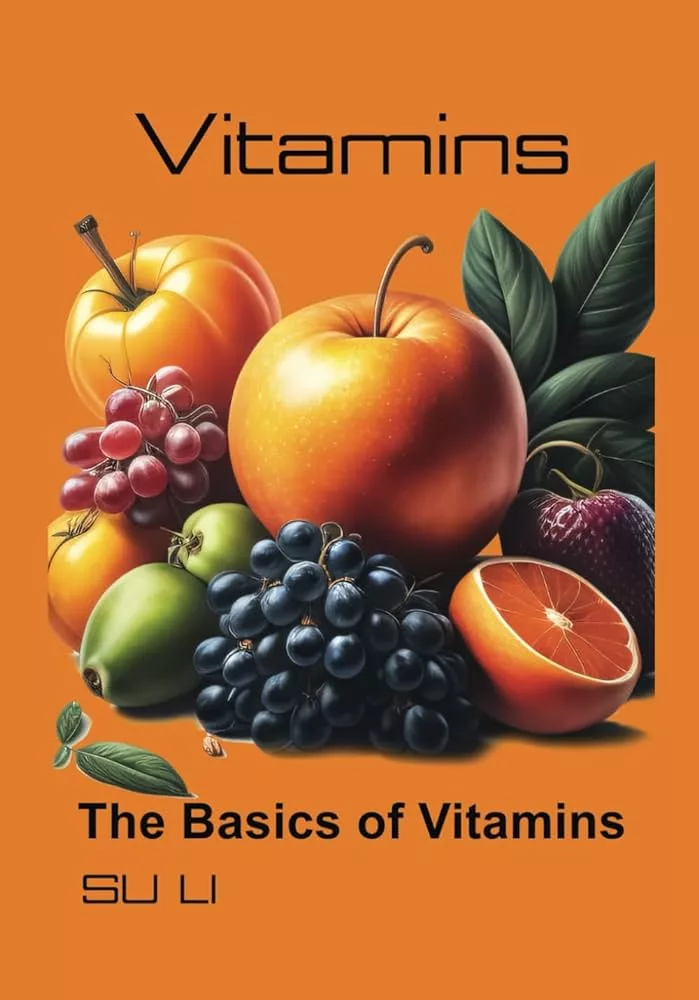
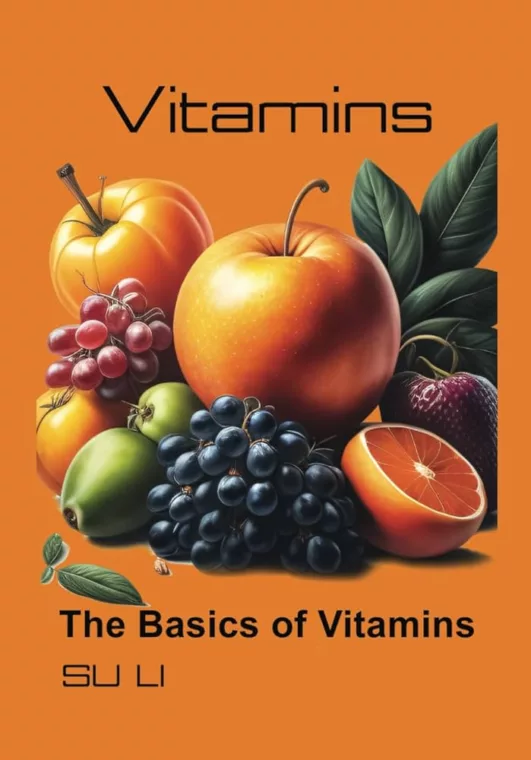
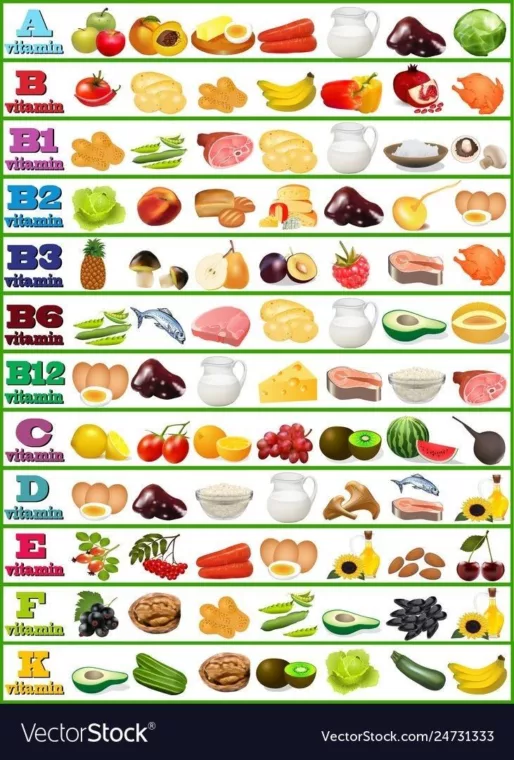
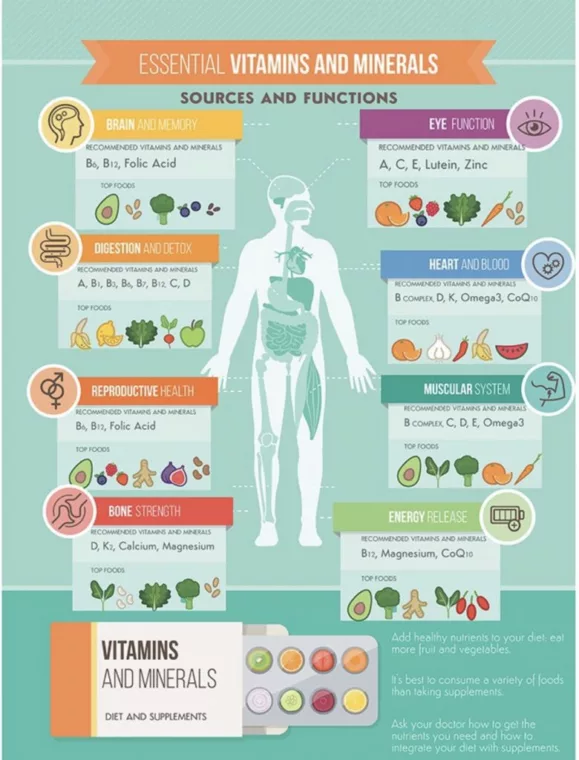
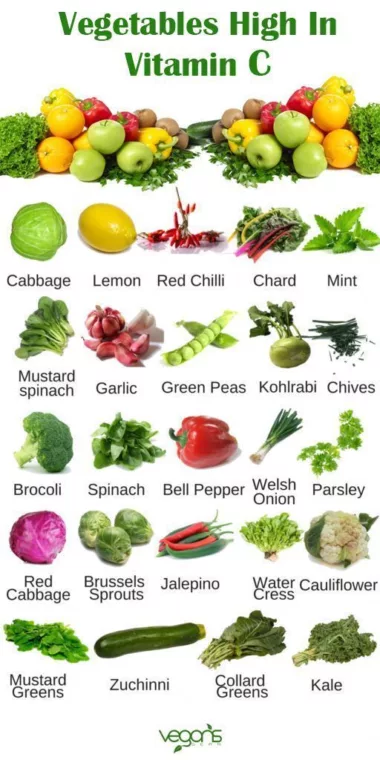
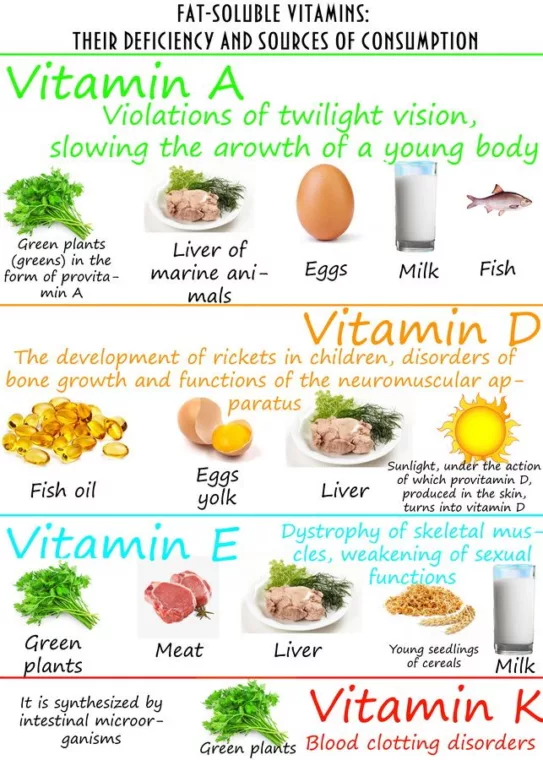
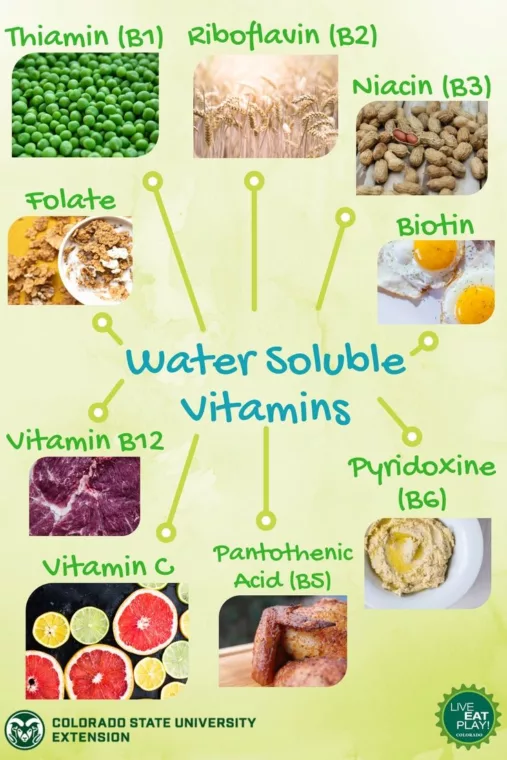

Leave a Reply